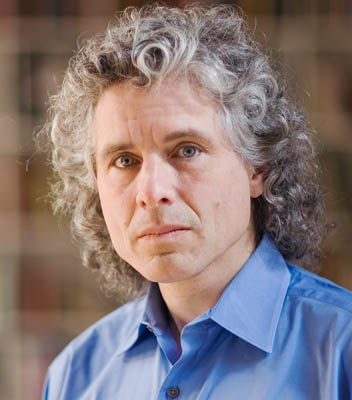‘Enlightened’ Denials
Questioning Steven Pinker’s 'Case for Science,' Is It Racism and Eugenics?

This October, UCSB Arts & Lectures is hosting Harvard evolutionary psychologist Steven Pinker discussing his best-selling book Enlightenment Now: The Case for Reason, Science, Humanism, and Progress. This book is one in a series of Pinker’s works, which seek to prove that our social differences, especially gender and racial differences, are primarily biological and genetic rather than created by sexist and racist environments. Pinker’s main point in this book is that we, in fact, live in the least of racist and sexist times, because, according to him, “science has granted us the gifts of life, health, wealth, knowledge, and freedom.”
Certainly, many scientists and critics have questioned such over-optimistic perspectives on both our society and science, but Pinker dismisses them, calling such critics “progressophobes” and “prophets of doom.” In addition, according to Pinker, the media, the Left, progressive students and faculty, and even the United Nations tend to have their “critical faculties” restricted by their interests in “dogmas” of social justice and their “anti-scientific bent that runs toward feel-good political correctness.” In light of his talk, we encourage our Santa Barbara community to hold conversations about the fact that science and scientists, like all things related to human experiences, reflect our social ideologies, values, and biases.
We urge you to look at the science and scientists Pinker promotes in his Enlightenment Now and his other works such as The Blank Slate (2002/2016), namely, F. Galton (founder of eugenics or “science of racial betterment”), E. O. Wilson (social biologist who explained racial inequality as based on evolution and not racism), Herrnstein & Murray (who claimed to supposedly empirically verify overall lower intelligence levels among African Americans), and Thornhill & Palmer (authors of the Natural History of Rape who claim rape is not a form of social violence but an evolutionary adaptive sex).
Pinker defends eugenic and racist studies, like the Tuskegee syphilis experiments, and recasts them as a “one-time failure to prevent harm to a few dozen people with the prevention of hundreds of millions of deaths per century in perpetuity.” Notably, Pinker (New Republic, 2005) was the key supporter of Lawrence Summers after Summers was dismissed from his post as president of Harvard University for claiming that men “outperform” women in sciences and mathematics because of gender-based biological differences and not social biases.
Many of Pinker’s assertions have been questioned by concerned scientists and social critics, including his statements that stereotypes are true because they are based on “census figures” (such as income, education, or crime statistics); that eugenic “breeding” of people based on “intelligence and character” is a good idea; that affirmative action is not only “discriminating against whites” but is wrong because minorities’/women’s under-representation reflects their lack of supposed inborn biological capacities in these areas; or that treating rape as a form of violence is “an example of extraordinary popular delusion and the madness of crowds.”
Pinker claims that because his views are supposedly based on scientific data, they must be the “truth” and “cannot be sexist” or support hate. In reality, the very same science and scientists Pinker often promotes are used by contemporary racist and misogynistic writers. For example, some of Pinker’s statements are an eerie echo of an introduction to David Duke’s My Awakening written by a “behavioral genetics” psychologist, who claimed that Duke, the KKK and white supremacy leader, provided “discoveries of honest truths that are politically incorrect. One of his honest truths is that from a thorough immersion in modern science [Duke] became convinced that racial egalitarianism is the scientific equivalent of the flat-Earth theory.”
Pinker’s position about Western sciences as faultless and pure or as being central to human rights is not just historically erroneous but misleading. Western scientists, after all, produced eugenics and also created methods of annihilating all the living things on our planet.
Oksana Yakushko is chair of the Clinical Psychology Department at Pacifica Graduate Institute, George Lipsitz is a professor in UCSB’s Black Studies Department, Aranye Fradenburg Joy is a professor emerita in UCSB’s English Department.



